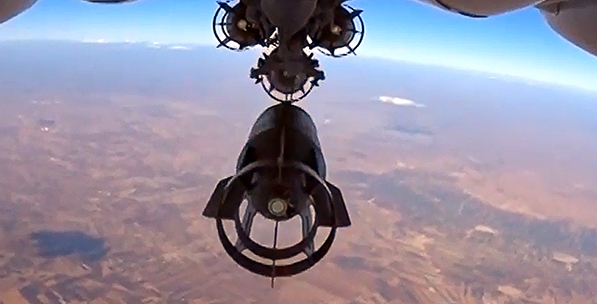It was a little more than three years ago at the Democratic National Convention when the current secretary of state, who was then the chairman of the Senate Committee on Foreign Relations, Senator John Kerry mocked the Republican nominee Mitt Romney for his statement on Russia. Romney called Russia the most significant geopolitical foe of the United States, which at that time raised harsh criticism by many foreign policy experts. Kerry in his speech said, "Mitt Romney talks like he's only seen Russia by watching 'Rocky IV'." Later in the presidential debate between the candidates, President Obama one more time brought up this issue to challenge the foreign policy credentials of his opponent. President Obama at that debate said: "Gov. Romney, I'm glad that you recognize that al-Qaeda is a threat because a few months ago when you were asked what's the biggest geopolitical threat facing America, you said Russia, not al-Qaeda. You said Russia ... the 1980s, they're now calling to ask for their foreign policy back because, you know, the Cold War's been over for 20 years." Of course this offense about Romney's statement on Russia came after sharp criticisms by the Republicans to the "reset" policy of President Obama toward Russia, which aimed to newly modify the relationship between the U.S. with Russia. The decision to stop the missile defense shield over Eastern Europe and the causal "buddy" moments with then President Medvedev were all parts of this reset policy. While critics were questioning the success of this new policy, President Obama was caught in a hot mic moment with President Medvedev in a summit, asking him to give him some time and saying that he would be more flexible after the elections. The partisan line became more obvious after this incident, as the Republicans increased their criticism of U.S. policy towards Russia.
A JEKYL AND HYDE
However, while President Obama was criticizing the Republican approach on Russia, he himself increasingly became restless about the policies of the Russian government. Weeks after his re-election, President Obama signed the Magnitsky Act that brought sanctions on human rights abusers in Russia, and with the constant reports about Russian military activity the situation got tense between the two countries. The analogies of the Cold War started to be made again with the Snowden Affair. The Russian decision to provide asylum for Edward Snowden resulted in one of the most difficult moments in bilateral relations during the Obama administration. A summit between Obama and Putin was cancelled in the aftermath of this decision.
While relations between two countries were going through one of the most significant crises, they found a working relationship in Syria. In the aftermath of chemical weapon use by the Assad regime, Secretary Kerry showed a way out for Assad, which was instrumentalized by the Russian government to rescue a military operation against Assad. The plan to remove the chemical weapons and eliminate them provided an excellent opportunity for the Obama administration to avoid a military intervention.
However, this partnership of convenience in Syria was interrupted by developments in Ukraine. U.S. sanctions after the crackdown in Kiev and the Russian annexation of Crimea and the civil war in Eastern Ukraine, caused more tension in bilateral relations. In several instances during these crises, Putin reminded the world that Russia is a nuclear power.
However, sanctions continued to increase, and with the dramatic decline in oil prices, the Russian economy experienced one of its hardest periods.
HEY! TEACHERS! LEAVE SYRIA ALONE
In the midst of these crises, the international community witnessed another significant development between the U.S. and Russia again in Syria. In the midst of the Cold War-like crises between the two countries, Russia and the U.S. worked in relative harmony on two significant issues in the Middle East. First of all, as part of the P5+1 negotiations concerning the Iranian nuclear program, the









